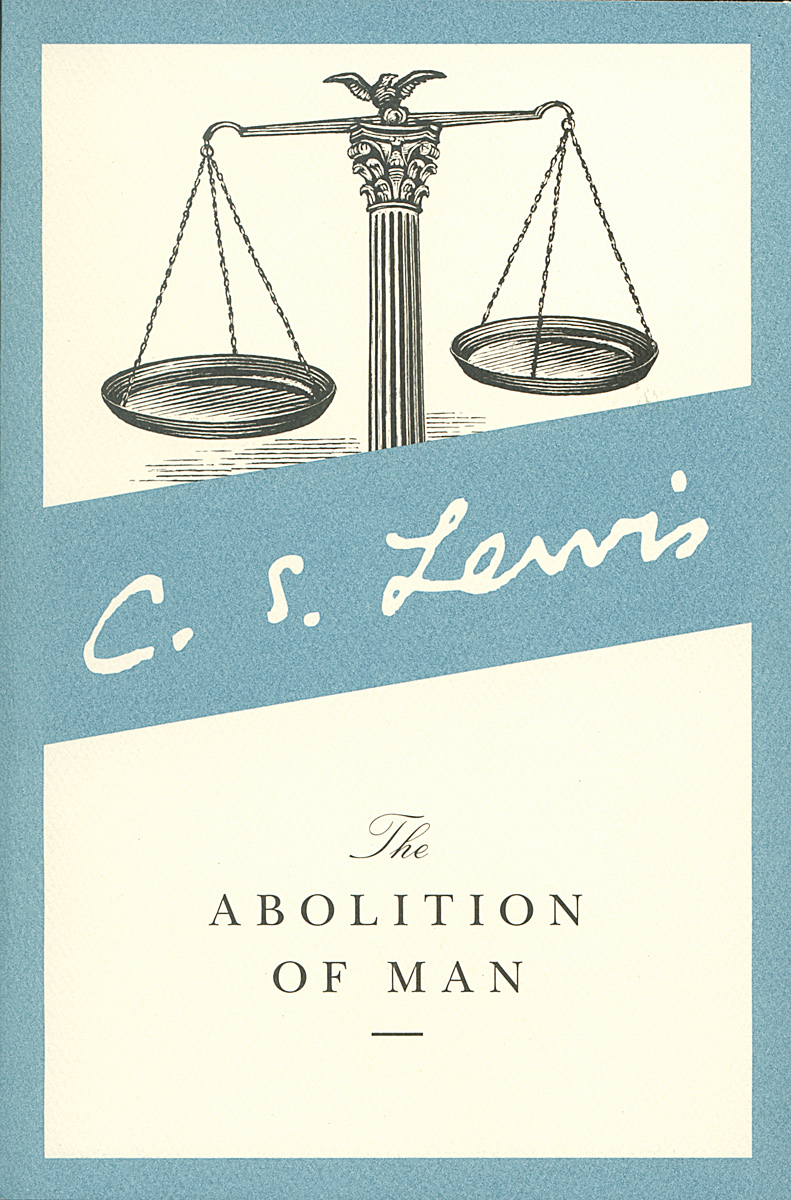Abolition of Man
By C.S. Lewis
There must be an end to explaining away and "seeing through" things. What good is a window if the garden and the street are transparent as well? In this short book, C. S. Lewis addresses the problem produced by modern education. Those who are educating the world's youth are stealing the foundation out from under the student in order to build a "better" structure. By eliminating what Lewis refers to as the "Tao," many teachers have replaced the objective for the subjective without realizing it.
Lewis, a confessing Theist, attempts to present a case for even those who do not share like convictions. One manner of doing this is by naming the natural law, or preassigned truth, to the "Tao." There are parts of this natural law found throughout every civilization and culture, and he demonstrates this by presenting the reader with a selection of sayings from various people groups. This allows the reader to see a representation of the teaching of the "Tao" without questioning from where it ultimately comes. The purpose of the author is not to convince the reader from whence comes the "Tao" but rather to express the presence and necessity of it.
In order to substantiate his argument for the abolition of man through modern education, Lewis interacts with two authors of his time who had written a popular educational book. He demonstrates to the reader through their example that the modern educators are treating the student as a poultry farmer conditions a bird rather than an adult bird trains a younger how to fly. The former knows not for what or how he is being conditioned therefore disabling him without his recognition. He is then prone to repeat this very procedure on others.
Lewis not only criticizes the work of the current educators but he also posits a better way. He states that "the task of the modern educator is not to cut down jungles but to irrigate deserts" (24). His point is that the current trend in education at the time of writing was to disassemble one's belief system instead of fostering it's growth. The goal of the modernist is to educate the mind so that one is able to see the error in their beliefs. The focus of Lewis however is to stress the formation of the heart. He states "the head rules the belly through the chest..." (34). The ultimate outcome of the modernist movement is the paradox that "we laugh at honour and and are shocked to find traitors in our midst" (35), In essence, a generation of "men with chests."
Reading through "The Abolition of Man" one wonders how exactly Lewis understands the "Tao". Is the "Tao" the actually grid by which one must understand the world, or is the "Tao" the outcome of seeing the world through that grid. It is true that these ethical standards are found through cultures from all ages, however, from whence came these statements of good and evil? Is it simply natural? If there is a natural law then who would be the lawgiver? These are questions which the reader is left with following the presentation of Lewis. Obviously it was not the intent of the author to deal with all the factors concerning one's worldview, however one is left to wonder. Is it possible to understand that there is a higher law and actually leave the conversation there?
If the "Tao" is actually the base from which the ethical statements found throughout the world are derived, one is left to question how one goes about teaching it. If the "Tao" is found in one's natural law or morality, does the student trust the nature of the teacher over his own nature? How did that teacher refine his own understanding of the natural law by which he has the right to teach it to others?
Lewis in the later part of his book deals with those who attempt to reason faith away. He argues that although there is a benefit to the exploration and dissection of nature, it comes at a very high price. He contends that when something has been conquered we lose part of it (84-85). Often times that which is lost is its greatest part for an object is not the sum total of its components. As if we could have a man if we were to obtain all the necessary elements in a laboratory test tube. The whole is much greater than the individual parts.
Where does the modernist take man? It takes him to a place where his heart has been torn out in exchange for the enlargement of his head. He has succeeded in providing possible alternatives for faith but has disabled his very soul. Lewis attempts to combat this heartless butchering by appealing to a natural law which much be fostered within the heart of the student by those who have followed it in their own lives.
One would do well to couple this book with a reading of Less Than Words Can Say. Mitchell in his critic on the lack of proper education and use of language postulated that in order for one's worldview to be changed he must change their language. He saw words and language as governing how one views the world. As a culture's language develops so does their ability to understand the world. Lewis however sees a greater law by which a worldview is formed. It is not language which governs one's interpretation of the facts but his understanding of the natural law which is given to each individual.
If this review was helpful, let me know here

No comments:
Post a Comment